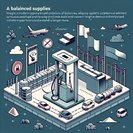
Finland’s chronic shortage of nurses and practical carers has long been offset by targeted labour migration programmes, particularly in the Philippines and Sri Lanka. New data released by the Finnish Immigration Service (Migri) and analysed by the Helsinki Times show that this pipeline has almost shut during the first four months of 2025: only 32 first-time residence-permit decisions were granted to social- and health-care workers, down from 572 a year earlier.
Behind the collapse lie several converging factors. Regional wellbeing services, which took over health-care provision in 2023, are struggling with deep budget deficits; many have frozen international recruitment drives or withdrawn job offers before workers could lodge visa applications. At the same time, reforms to Finland’s citizenship and residence rules—higher language thresholds, longer qualifying periods and new welfare-dependency restrictions—have made the country less attractive in a fiercely competitive global market for nurses. Recruitment agencies report that Filipino candidates are now favouring Germany and Canada, which offer faster pathways to permanent status.
The numbers matter. Finland already has the oldest population in the EU, and official projections say it will need at least 20,000 additional care workers by 2030. Without immigration, understaffing is forcing municipal care homes to close beds, lengthening waiting lists and pushing more elderly Finns into expensive hospital wards. Private providers that rely on international hires are also affected: an executive at Mehiläinen told the paper that the company has postponed the opening of two elderly-care facilities outside Helsinki because it cannot guarantee staff.
For global mobility managers the message is clear: processing times are no longer the bottleneck—demand is. Employers who still wish to bring in non-EU carers must now shoulder more of the upfront risk (for example, by paying for extended Finnish-language training abroad) and prepare for tougher financial-sufficiency checks when permits are renewed. Some have begun experimenting with remote onboarding and hybrid work models—using EU residence-by-training visas that allow nurses to complete theory modules online before relocating.
Policy watchers expect the government to reveal an emergency labour-migration package during the autumn budget round, but officials privately concede that any increase in quotas will have to be matched with fresh municipal funding. In the meantime, relocation advisers are warning corporate HR teams that family-reunification cases linked to care-sector permits are now subject to even closer scrutiny of income and housing.
Behind the collapse lie several converging factors. Regional wellbeing services, which took over health-care provision in 2023, are struggling with deep budget deficits; many have frozen international recruitment drives or withdrawn job offers before workers could lodge visa applications. At the same time, reforms to Finland’s citizenship and residence rules—higher language thresholds, longer qualifying periods and new welfare-dependency restrictions—have made the country less attractive in a fiercely competitive global market for nurses. Recruitment agencies report that Filipino candidates are now favouring Germany and Canada, which offer faster pathways to permanent status.
The numbers matter. Finland already has the oldest population in the EU, and official projections say it will need at least 20,000 additional care workers by 2030. Without immigration, understaffing is forcing municipal care homes to close beds, lengthening waiting lists and pushing more elderly Finns into expensive hospital wards. Private providers that rely on international hires are also affected: an executive at Mehiläinen told the paper that the company has postponed the opening of two elderly-care facilities outside Helsinki because it cannot guarantee staff.
For global mobility managers the message is clear: processing times are no longer the bottleneck—demand is. Employers who still wish to bring in non-EU carers must now shoulder more of the upfront risk (for example, by paying for extended Finnish-language training abroad) and prepare for tougher financial-sufficiency checks when permits are renewed. Some have begun experimenting with remote onboarding and hybrid work models—using EU residence-by-training visas that allow nurses to complete theory modules online before relocating.
Policy watchers expect the government to reveal an emergency labour-migration package during the autumn budget round, but officials privately concede that any increase in quotas will have to be matched with fresh municipal funding. In the meantime, relocation advisers are warning corporate HR teams that family-reunification cases linked to care-sector permits are now subject to even closer scrutiny of income and housing.







